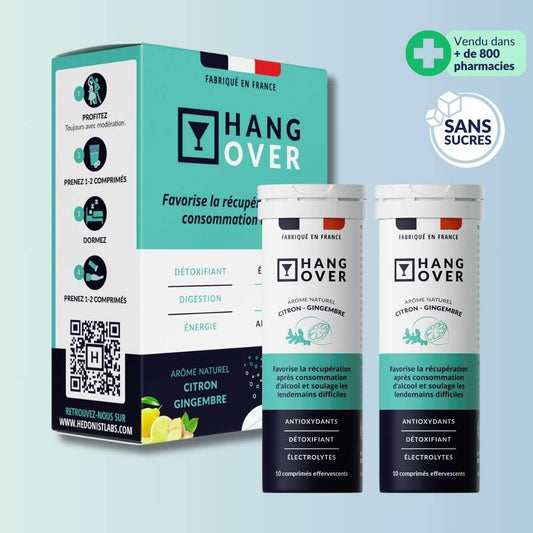Le laboratoire d'Hédonistlabs
Il est difficile de répondre à la question de savoir si l'alcool stimule l'appétit, en grande partie à cause de la grande variété de boissons alcoolisées. Certaines sont pétillantes, d'autres sont sucrées, d'autres encore sont salées, certaines sont plus épaisses et d'autres le sont moins, et chacun de ces aspects peut supprimer ou stimuler l'appétit.
Tout est question d'associations. Par exemple, on associe le vin rouge à la nourriture et on a donc tendance à manger davantage quand on en boit. Le pétillement de certaines boissons alcoolisées peuvent également être à l'origine de l'engourdissement de votre bouche et de votre palais.
La relation entre la consommation d'alcool et le poids corporel est complexe et incertaine, car elle peut être influencée par le type d'alcool, le niveau de consommation habituel et les différences entre les sexes. Une consommation importante et régulière d'alcool est souvent associée à la prise de poids, bien qu'il ne soit pas clair si cela est dû à la consommation d'alcool elle-même ou à l'apport énergétique supplémentaire provenant des aliments.
Il existe des preuves que l'alcool peut stimuler l'appétit
La consommation d'alcool stimule l'appétit et peut stimuler l’appétit. Bien que le mécanisme ne soit pas clair, on a émis l'hypothèse que la consommation d'alcool semble contourner les mécanismes de satiété qui régulent la prise alimentaire à court terme.
De nombreuses études ont tenté de tester si l'alcool est effectivement une substance stimulant l'appétit, le terme médical désignant toute substance qui augmente l'appétit. Les méthodes utilisées par ces chercheurs varient d'une étude à l'autre, mais leur idée centrale est la même.
Les participants se sont vu offrir des boissons alcoolisées ou non alcoolisées et ont observé les calories consommées lors du repas suivant, la faim signalée par ces participants avant, pendant et après le repas, et leur degré de satisfaction et de satiété.
L'alcool peut également stimuler les cellules nerveuses
L'alcool peut également stimuler les cellules nerveuses de l'hypothalamus du cerveau, ce qui augmente l'appétit. Ces neurones sont activés par la faim, ce qui entraîne une faim extrême, et peuvent être stimulés par la consommation d'alcool, ce qui entraîne ces fringales parfois incontrôlables.
De même, l'alcool affecte le système endocrinien et les réponses hormonales, qui peuvent tous deux être mis en relation avec le fonctionnement du cerveau.
Alcool et appétit
En somme, l’alcool peut stimuler l’appétit chez certaines personnes et conduire à un effet de satiété chez d’autres. Le choix spécifique de boisson, la fréquence de consommation, le fait que l'on ait bu ou non, beaucoup ou peu, la qualité du sommeil ou la qualité de la nourriture peuvent également avoir joué un rôle dans les résultats.
Il est important de noter que la consommation excessive d'alcool peut avoir des effets néfastes sur la santé, y compris une augmentation du risque d'obésité et de maladies chroniques telles que le diabète et les maladies cardiovasculaires. Par conséquent, il est recommandé de consommer de l'alcool avec modération et de maintenir une alimentation équilibrée pour préserver une bonne santé.
HANG-OVER et le rebond gabaergique
Lorsque le taux de GABA diminue après la consommation d'alcool, cela peut aussi influer sur l'appétit et la sensation de faim.
Par sa formule unique composée notamment de mélisse HANG-OVER permet d'anticiper le rebond gabaergique qui entraîne les faims hédoniques en contrôlant l'apparition de ses faims, ce qui permet également de prévenir la prise de poids.





